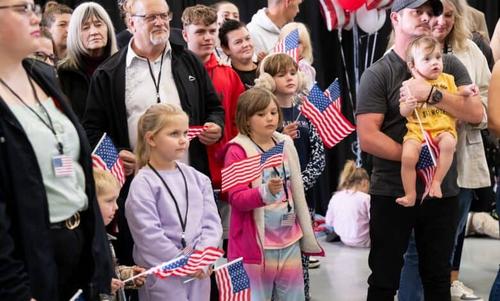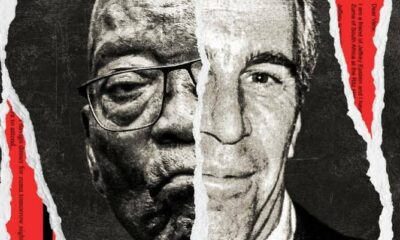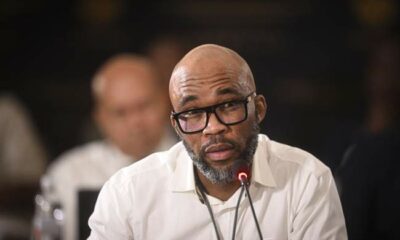News
Controversy as US Welcomes Afrikaner Refugees: Hunger, Politics, and a Divided South Africa

In a move that’s dividing opinions across two continents, the United States is preparing to welcome 49 white Afrikaners from South Africa as refugees. The group is expected to arrive in Washington, DC, starting May 12, with officials reportedly arranging a charter flight to land at Dulles International Airport.
Originally, 54 individuals applied for asylum, but five were flagged due to criminal records. The rest — mainly families — claim they’re fleeing hunger, economic hardship, and political uncertainty.
However, the decision has stirred up a storm back home. Critics, including political analyst Sandile Swana, argue there is no factual basis for the asylum claims.
“For refugee status to be granted, there must be evidence that a person’s life is at risk due to persecution — and that simply isn’t the case for white Afrikaners in South Africa,” Swana said.
He noted that countries such as Eritrea, Sudan, and the DRC have well-documented refugee crises, unlike South Africa.
“No ethnic or political group in South Africa is under state-sponsored threat,” he added.
This controversy comes just months after former President Donald Trump signed an executive order fast-tracking refugee status for Afrikaners — descendants of Dutch and French settlers — while simultaneously freezing refugee processing for tens of thousands fleeing war and persecution in countries like Afghanistan and Congo.
Critics say the policy is racially and ideologically motivated, designed to align with Trump’s support base.
“This administration appears to be reducing asylum for people of color while selectively opening doors for white Christians who claim persecution,” Swana commented.
Elon Musk, a South African-born billionaire and one of Trump’s top advisers, also weighed in by slamming South Africa’s Expropriation Act. The law allows the state to redistribute land without compensation, which some Afrikaners claim puts their safety and livelihoods at risk.
Still, available data tells a more complex story. South Africa’s crime statistics show that rural crime affects both Black and white farmers. And while land ownership remains unequally distributed — with white farmers holding around 72% of individually owned land — there is no credible evidence of systematic ethnic persecution.
Voices of Desperation
Despite the criticism, some Afrikaners seeking resettlement say their decision comes down to survival.
“I can’t even afford bread. My children are hungry,” said Kirsten Van Der Vententer, one of the asylum seekers.
Meisie Tonder, another applicant, shared a more conflicted view.
“I don’t have to go. My husband is not happy here, so we’ll wait to leave. We don’t know what the future holds.”
Meanwhile on Social Media
Trump recently took to X (formerly Twitter) to promote his controversial “self-deportation” programme, offering free flights and cash incentives to undocumented immigrants who voluntarily leave the U.S.
“Illegal aliens who stay in America face punishments, including sudden deportation,” Trump posted. “TO ALL ILLEGAL ALIENS: BOOK YOUR FREE FLIGHT RIGHT NOW!”
While his administration shuts doors for many, it appears to be opening a specific door for a select few — a move that raises questions about the real priorities behind America’s refugee policy.
As the first group of Afrikaner refugees prepares to arrive in the U.S., many in South Africa are left wondering: Is this a genuine humanitarian move, or a political performance wrapped in selective compassion?
What’s certain is that the story is far from over — and the debate it sparks may only just be beginning.
The 49 Who Left And the 64 Million Who Still Choose South Africa
{Source: IOL}
Follow Joburg ETC on Facebook, Twitter , TikTok and Instagram
For more News in Johannesburg, visit joburgetc.com



























